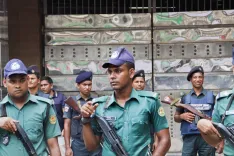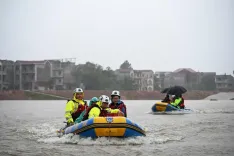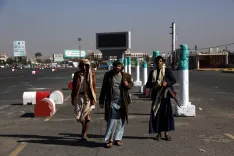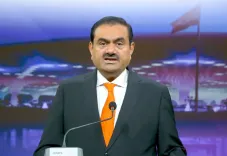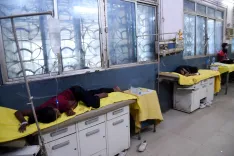How is AU Enhancing Africa's Space-Based Climate Early Warning Systems?
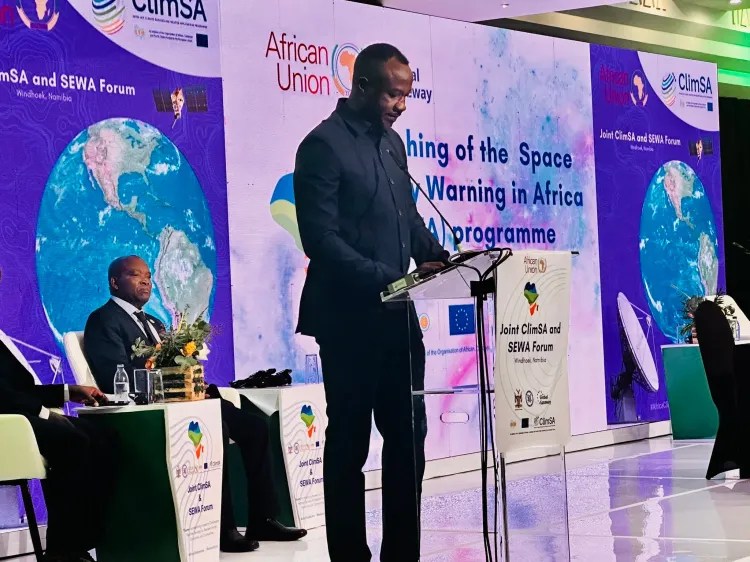
Synopsis
Key Takeaways
- SEWA aims to enhance early warning services across Africa.
- It addresses the high vulnerability of the continent to climate change.
- The initiative promotes the use of advanced satellite data.
- SEWA will contribute to sustainable development efforts.
- Improving access to reliable weather information is critical for resilience.
Addis Ababa, June 28 (NationPress) The African Union (AU) Commission has unveiled the Space for Early Warning in Africa (SEWA) initiative, which seeks to bolster the continent's capability in producing and providing space-based early warning services for dangerous climatic events, according to officials from the pan-African organization.
According to Moses Vilakati, AU commissioner for agriculture, rural development, blue economy, and sustainable environment, SEWA is expected to significantly mitigate the loss of lives and property, particularly in agricultural sectors, due to heavy rainfall, flooding, and other extreme climate occurrences.
“The SEWA project aligns with the AU Commission's commitment to enhancing African abilities to leverage data from the latest generation of satellites for climate and weather-related early warning systems,” Vilakati stated in an interview with Xinhua news agency.
He emphasized that the risk of disasters remains exceedingly high across Africa, as many nations have recently suffered from floods, droughts, and famine due to the absence of precise and trustworthy early warning services.
SEWA is anticipated to fortify the resilience of AU member states against climate threats by improving access to, and utilization of, earth observation meteorological data and weather services.
“Africa is among the most vulnerable regions globally to climate change, yet it has limited access to reliable climate services,” Vilakati noted, highlighting that enhancing weather forecasting and climate information systems is crucial for resilience in agriculture, health, energy, water management, and disaster risk reduction.
Harsen Nyambe, Director of blue economy and sustainable environment at the AU Commission, indicated that SEWA will provide real-time services to end users, including weather, water, early warning, and climate information.
“The SEWA initiative will guide African nations in creating information that meets their needs, with a design that flows from user requirements,” Nyambe added.
Furthermore, SEWA aims to incorporate weather, water, and climate information into national and regional development frameworks to foster sustainable development, particularly regarding poverty alleviation, climate change adaptation, and disaster risk management.
Data from the AU Commission reveals that less than 50% of Africans have access to early warning systems, and the existing systems are frequently unreliable. This inadequacy has resulted in considerable loss of life and property.
The AU Commission also disclosed that weather stations throughout the continent are often spaced too far apart to yield meaningful local data due to diverse terrains and altitudes. This insufficient coverage has obstructed accurate forecasting of severe weather and extreme climate events.
The official launch of the SEWA initiative occurred on June 24 in Windhoek, the capital of Namibia, marking a significant advancement in Africa's capacity to predict and respond to climate-related disasters through space-based technologies.

